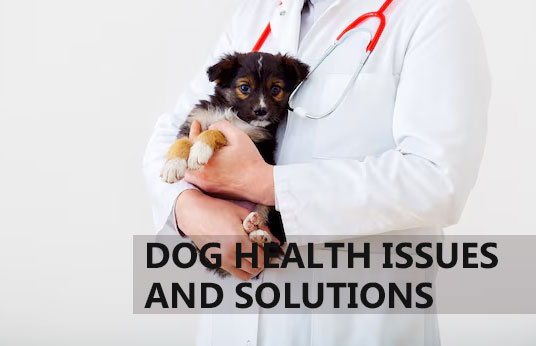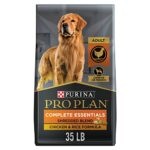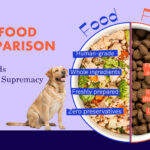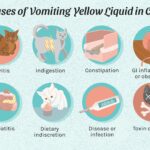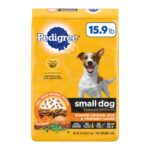Dogs can face various health issues such as obesity, dental problems, and allergies. Solutions include proper diet, regular vet check-ups, and good hygiene.
Caring for your dog’s health is crucial for their well-being. Common issues like obesity can be managed with a balanced diet and exercise. Regular dental care helps prevent oral diseases and bad breath. Allergies, often indicated by itching or redness, require proper diagnosis and treatment.
Regular vet visits ensure early detection of potential health problems. A healthy lifestyle, including nutritious food, clean water, and physical activity, keeps your dog happy and active. Early intervention and preventive care are key to maintaining your dog’s health. This guide offers practical solutions to common dog health issues, promoting a long and joyful life for your furry friend.
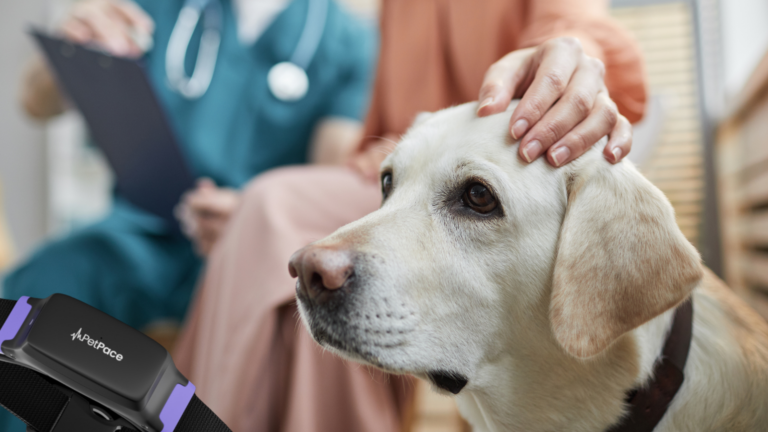
Credit: petpace.com
Common Dog Health Issues
Keeping your furry friend healthy involves understanding common dog health issues and solutions. Regular dog health concerns like parasites, obesity, and dental problems can affect your pet’s quality of life. Addressing these issues promptly ensures a happy and healthy life for your dog.
Parasites
Parasites are a frequent problem in dogs, affecting their overall health. Fleas, ticks, and worms are some common parasites that can harm your dog. Fleas cause itching and can lead to skin infections. Ticks can transmit diseases like Lyme disease. Worms, including heartworms and intestinal worms, can affect your dog’s internal organs.
Signs of parasitic infections include:
- Scratching and itching
- Visible fleas or ticks
- Vomiting and diarrhea
- Weight loss
- Swollen belly
Parasite treatment involves regular vet visits and preventative measures. Monthly medications can prevent fleas, ticks, and worms. Keeping your dog’s environment clean also helps reduce the risk of infestation.
| Parasite | Symptoms | Treatment |
|---|---|---|
| Fleas | Itching, skin infections | Topical treatments, oral medications |
| Ticks | Fever, lethargy | Tick removal, tick prevention products |
| Worms | Diarrhea, weight loss | Oral dewormers, monthly preventatives |
Obesity
Obesity is another common dog health issue that affects many pets. Excess weight can lead to several canine diseases, including diabetes, heart disease, and arthritis. Obese dogs may also have reduced mobility and a shorter lifespan.
Causes of obesity in dogs include:
- Overfeeding
- Lack of exercise
- High-calorie treats
- Genetic factors
Maintaining a healthy weight is crucial for your dog’s health. Regular exercise and a balanced diet are essential. Portion control helps in managing calorie intake. Consult your vet for a suitable diet plan. Avoid feeding your dog table scraps and high-calorie treats.
| Tip | Description |
|---|---|
| Exercise | Daily walks, playtime, and activities |
| Balanced Diet | Nutritious, portion-controlled meals |
| Regular Check-ups | Monitoring weight and health with a vet |
Dental Problems
Dental problems are among the most overlooked pet health challenges. Plaque and tartar buildup can lead to gum disease, tooth decay, and bad breath. Untreated dental issues can cause pain and may affect your dog’s overall health.
Signs of dental problems include:
- Bad breath
- Red or swollen gums
- Difficulty eating
- Loose or missing teeth
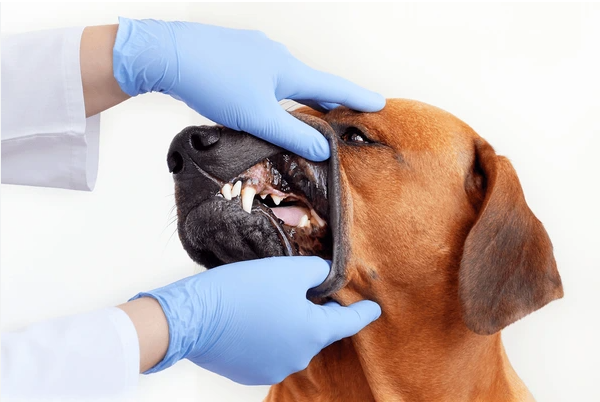
Preventing dental problems involves regular dental care. Brushing your dog’s teeth at least three times a week helps remove plaque. Dental chews and toys can also aid in maintaining oral health. Regular vet check-ups for professional cleanings are crucial.
| Dental Care Tip | Benefit |
|---|---|
| Brushing Teeth | Reduces plaque and tartar |
| Dental Chews | Helps clean teeth |
| Regular Vet Visits | Professional cleaning and check-ups |
Recognizing Symptoms
Recognizing symptoms of dog health issues early can make a big difference in their well-being. Dogs can’t tell us when something is wrong, so it’s important to watch for signs. Understanding these symptoms can help you take action quickly and keep your furry friend healthy.
Changes In Appetite
Changes in appetite can signal health problems in dogs. A sudden loss of appetite might indicate an underlying issue. Dogs might skip meals occasionally, but persistent refusal to eat is concerning. This could be due to dental problems, gastrointestinal issues, or even stress.
On the other hand, increased appetite can also be a symptom. Dogs might eat more if they have diabetes, thyroid problems, or intestinal issues. Keep an eye on how much your dog eats and note any changes.
| Symptom | Possible Cause |
|---|---|
| Loss of Appetite | Dental issues, stress, gastrointestinal problems |
| Increased Appetite | Diabetes, thyroid issues, intestinal problems |
To maintain your dog’s health:
- Monitor their eating habits daily.
- Provide a balanced diet.
- Consult a vet if changes persist.
Lethargy
Lethargy is another important symptom to watch for. If your dog is less active than usual, it might be due to an underlying health issue. Reduced energy levels can stem from infections, chronic diseases, or even heart problems.
Signs of lethargy include:
- Reluctance to play or walk
- Sleeping more than usual
- Weakness or difficulty moving
If your dog shows these signs, it’s crucial to take note. Lethargy can be a symptom of various conditions, such as:
| Condition | Description |
|---|---|
| Infections | Bacterial or viral infections causing fatigue |
| Chronic Diseases | Conditions like arthritis or diabetes |
| Heart Problems | Issues affecting heart function and energy levels |
Always consult a vet if your dog remains lethargic for several days. Early detection can lead to effective treatment and recovery.
Unusual Lumps
Finding unusual lumps on your dog can be alarming. Not all lumps are dangerous, but it’s important to check them out. Lumps can appear due to various reasons, like benign tumors, infections, or cancer.
Check your dog regularly for any growths or swellings. Run your hands over their body during grooming sessions. If you find a lump, note its:
- Size
- Shape
- Texture
Document changes over time and consult your vet. Some lumps might be harmless cysts or fatty tumors, but others could be serious.
| Lump Type | Description |
|---|---|
| Benign Tumors | Non-cancerous growths, often fatty |
| Infections | Abscesses or swollen glands |
| Cancerous Tumors | Malignant and potentially dangerous |
Regular vet check-ups can help identify and treat lumps early. Keeping an eye on your dog’s health ensures they stay happy and healthy.
Preventive Measures
Ensuring your dog’s health is crucial to their happiness and longevity. Understanding dog health issues and solutions can help you prevent common problems. Implementing effective preventive measures is key to avoiding regular dog health concerns. Focus on consistent care to keep your furry friend thriving.
Regular Vet Visits
Regular vet visits are essential for maintaining your dog’s health. Routine check-ups help detect early signs of illness, allowing for prompt treatment. Regular visits can address common pet health challenges such as dental problems, skin issues, and parasite treatment.
During a vet visit, your dog will receive:
- A thorough physical exam
- Vaccinations
- Blood tests
- Parasite screenings
Early detection of issues can prevent serious health problems. Vets can also guide you on the best practices for canine diseases prevention. Keeping up with regular vet visits ensures your dog stays healthy and happy.
Balanced Diet
A balanced diet is vital for your dog’s well-being. Proper nutrition supports their immune system, maintains a healthy weight, and provides energy. Ensure your dog receives a mix of proteins, carbohydrates, fats, vitamins, and minerals.
Consider the following for a balanced diet:
| Nutrient | Source |
|---|---|
| Protein | Chicken, Beef, Fish |
| Carbohydrates | Rice, Sweet Potatoes |
| Fats | Fish Oil, Flaxseed |
| Vitamins | Fruits, Vegetables |
| Minerals | Bone Meal, Supplements |
Consult your vet to tailor a diet specific to your dog’s needs. Avoid overfeeding to prevent obesity and related dog health issues. A balanced diet is the foundation of your dog’s health.
Exercise Routine
An effective exercise routine keeps your dog fit and mentally stimulated. Regular physical activity helps prevent obesity, strengthens muscles, and improves cardiovascular health. Aim for at least 30 minutes of exercise daily.
Incorporate the following activities:
- Daily walks
- Playing fetch
- Agility training
- Interactive toys
Exercise also reduces stress and anxiety in dogs. It provides an outlet for their energy, reducing destructive behaviors. Tailor the exercise routine to your dog’s age, breed, and health condition. Keeping your dog active is a cornerstone of dog health issues and solutions.
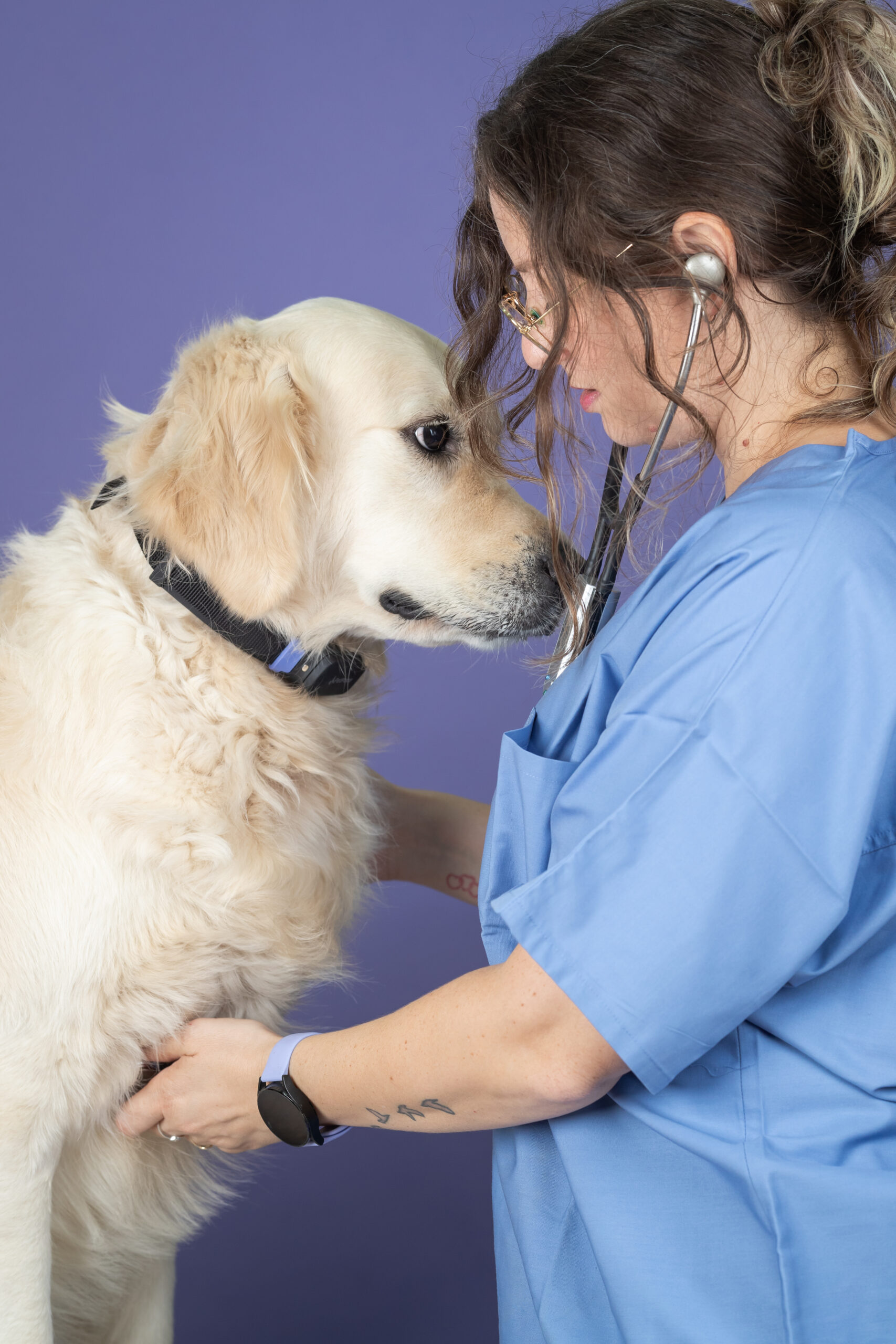
Credit: petpace.com
Nutritional Needs
Ensuring your dog stays healthy is crucial. Understanding their nutritional needs can prevent many dog health issues and solutions. A balanced diet helps in managing regular dog health concerns and ensures overall well-being. Let’s explore the key aspects of their nutritional needs.
Importance Of Quality Food
Choosing the right food for your dog is vital. High-quality food ensures they get the necessary nutrients. Poor nutrition can lead to various canine diseases and health problems.
Quality food contains:
- Proteins for muscle development
- Carbohydrates for energy
- Fats for a healthy coat
- Vitamins and minerals for overall health
Here’s a comparison table to help you understand the difference:
| Nutrient | High-Quality Food | Low-Quality Food |
|---|---|---|
| Protein Source | Real Meat | By-products |
| Carbohydrates | Whole Grains | Fillers |
| Fats | Healthy Oils | Unhealthy Fats |
| Vitamins & Minerals | Balanced | Unbalanced |
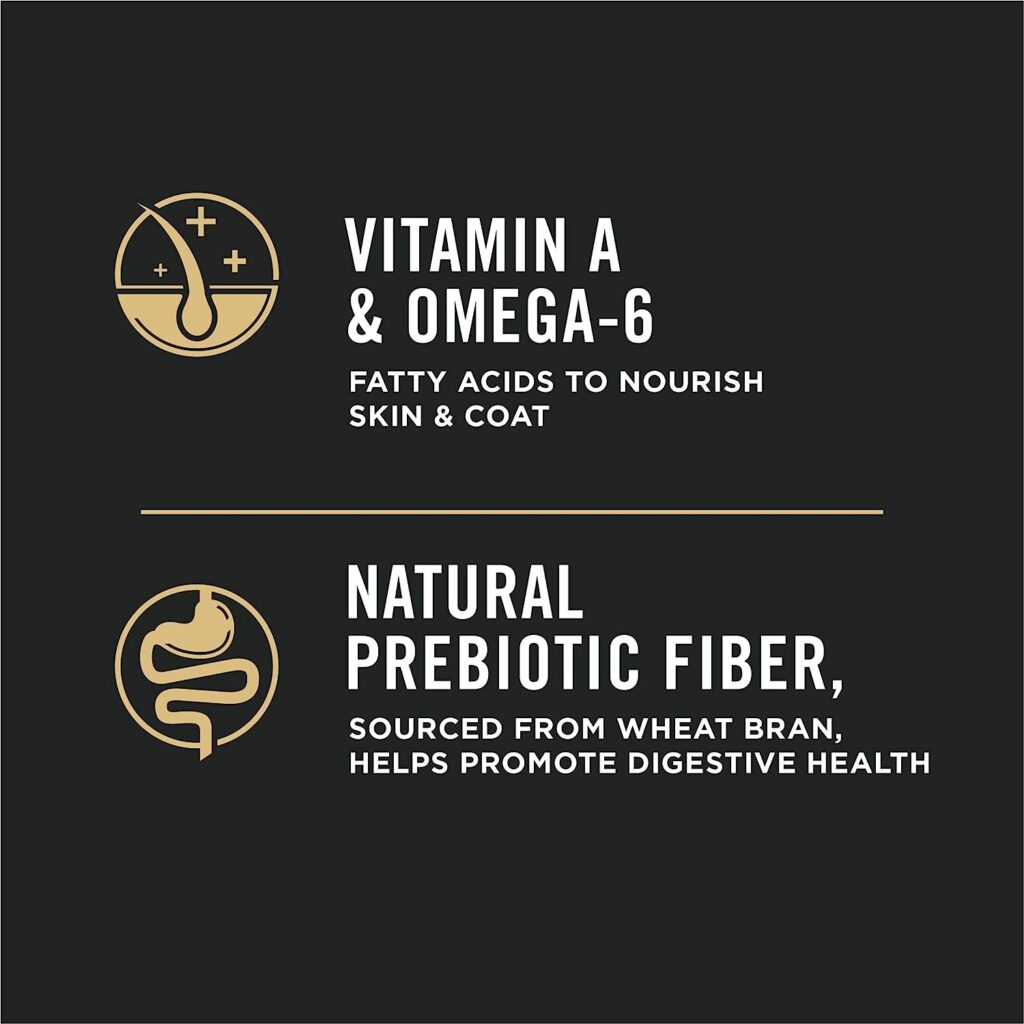
Feeding high-quality food helps maintain a healthy weight and reduces the risk of parasite treatment and other pet health challenges.
Supplements
Supplements can be a great addition to your dog’s diet. They help address specific regular dog health concerns.
Common supplements include:
- Omega-3 fatty acids for a shiny coat and healthy skin
- Glucosamine for joint health
- Probiotics for digestive health
- Vitamins for overall wellness
Each supplement serves a unique purpose:
| Supplement | Benefit |
|---|---|
| Omega-3 | Improves skin and coat |
| Glucosamine | Supports joint health |
| Probiotics | Aids digestion |
| Vitamins | Boosts immunity |
Consult your vet before introducing any new supplement to ensure it’s safe and beneficial for your dog.
Avoiding Harmful Foods
Some foods are dangerous for dogs. Avoiding these can prevent many dog health issues and solutions.
Harmful foods to avoid include:
- Chocolate – Contains theobromine, toxic to dogs
- Grapes and raisins – Can cause kidney failure
- Onions and garlic – Damage red blood cells
- Alcohol – Causes severe poisoning
- Caffeinated drinks – Can lead to severe health problems
Here’s a quick reference table:
| Food | Effect on Dogs |
|---|---|
| Chocolate | Toxic, can cause seizures |
| Grapes/Raisins | Kidney failure |
| Onions/Garlic | Damages red blood cells |
| Alcohol | Severe poisoning |
| Caffeine | Severe health problems |
Keep these foods out of reach to ensure your dog stays healthy and happy.
Exercise And Mental Stimulation
Dogs need both physical exercise and mental stimulation to stay healthy. Regular activity and engaging tasks help prevent common dog health issues. These activities can also address pet health challenges and improve overall well-being. Below, we explore three essential aspects of exercise and mental stimulation for dogs.
Physical Activity
Physical activity is crucial for a dog’s health. It helps maintain a healthy weight and prevents canine diseases. Different breeds have different exercise needs. A daily walk is a must for all dogs. It keeps them fit and happy.
Consider these activities to keep your dog active:
- Jogging: Great for high-energy dogs.
- Fetch: A fun way to burn energy.
- Swimming: Low-impact and good for joints.
- Hiking: Excellent for both physical and mental stimulation.
Regular exercise reduces the risk of obesity. It also keeps their heart and muscles strong. To avoid pet health challenges, ensure your dog gets enough physical activity. Below is a table summarizing the exercise needs for different breeds:
| Breed Type | Daily Exercise Needed |
|---|---|
| Small Breeds | 30-45 minutes |
| Medium Breeds | 45-60 minutes |
| Large Breeds | 60-90 minutes |
Interactive Toys
Interactive toys are fantastic for mental stimulation. They keep dogs engaged and reduce boredom. Boredom can lead to behavioral issues and other dog health problems.
Here are some popular interactive toys:
- Kong Toys: Can be filled with treats to keep dogs busy.
- Puzzle Toys: Encourage problem-solving skills.
- Interactive Balls: Move and make noise to attract attention.
- Chew Toys: Good for dental health and mental engagement.
Interactive toys help with parasite treatment by keeping dogs distracted. This makes it easier to administer medications. They also help maintain a healthy weight by encouraging movement. Regularly rotating toys can keep your dog interested and engaged. This variety helps avoid regular dog health concerns related to inactivity and boredom.
Training
Training is another excellent way to provide mental stimulation. It also strengthens the bond between you and your dog. Training sessions can be short but should be consistent.
Consider these training activities:
- Basic Commands: Sit, stay, and come.
- Advanced Tricks: Roll over, play dead, and fetch specific items.
- Agility Training: Obstacle courses and jumps.
- Nose Work: Scent detection games.
Training helps in addressing regular dog health concerns by keeping their mind sharp. It can also aid in early detection of canine diseases by observing changes in behavior. Consistent training sessions can prevent pet health challenges by promoting mental and physical well-being. Using positive reinforcement makes training enjoyable for both you and your dog.
Grooming And Hygiene
Ensuring your dog’s grooming and hygiene is essential for their overall health. Proper grooming helps prevent common dog health issues and solutions like skin infections, parasites, and other regular dog health concerns. Maintaining your dog’s cleanliness can also improve their comfort and happiness. In this section, we will focus on three main aspects of grooming: Bathing, Brushing, and Nail Trimming.
Bathing
Bathing your dog is crucial for their hygiene and health. Regular baths help remove dirt, allergens, and parasites from their coat. Here are some key points to keep in mind while bathing your dog:
- Frequency: Most dogs should be bathed once every 1-3 months. Over-bathing can strip natural oils from their skin.
- Products: Use dog-specific shampoos and conditioners. Human products can irritate their skin.
- Temperature: Use lukewarm water. Hot water can burn their skin, while cold water can be uncomfortable.
- Rinsing: Rinse thoroughly to remove all shampoo residues. Leftover soap can cause itching and dryness.
Here’s a simple table to help you choose the right bathing products for your dog:
| Dog Type | Recommended Shampoo |
|---|---|
| Allergies | Hypoallergenic Shampoo |
| Dry Skin | Moisturizing Shampoo |
| Oily Skin | Medicated Shampoo |
Brushing
Brushing your dog’s coat is essential for their health and appearance. It helps remove loose hair, dirt, and prevents matting. Regular brushing can also improve blood circulation and distribute natural oils across their coat. Here are some tips for effective brushing:
- Frequency: Brush your dog at least once a week. Long-haired breeds may require daily brushing.
- Tools: Use the right brush for your dog’s coat type. A slicker brush is good for long hair, while a bristle brush works well for short hair.
- Technique: Brush gently in the direction of hair growth. Start from the head and move towards the tail.
- Check for Parasites: While brushing, check for fleas, ticks, and other parasites. Early detection is key for parasite treatment.
Here is a list of suitable brushes for different coat types:
- Slicker Brush: Best for long-haired breeds.
- Bristle Brush: Ideal for short-haired breeds.
- Undercoat Rake: Perfect for dogs with thick undercoats.
Nail Trimming
Nail trimming is vital for your dog’s health and comfort. Overgrown nails can cause pain, infections, and affect their walking. Here are some tips for safe nail trimming:
- Frequency: Trim your dog’s nails every 3-4 weeks. Active dogs may need less frequent trims.
- Tools: Use dog-specific nail clippers or a grinding tool. Avoid using human nail clippers.
- Technique: Hold the paw gently and trim a small portion of the nail at a time. Avoid cutting into the quick, which can cause bleeding and pain.
- Reward: Offer treats and praise to make the experience positive for your dog.
Here’s a quick guide to help you trim your dog’s nails safely:
- Prepare: Gather all necessary tools and have styptic powder ready in case of bleeding.
- Position: Ensure your dog is comfortable and relaxed.
- Trim: Cut small portions at a time, focusing on the white part of the nail.
- Reward: Praise your dog and give them a treat after each session.
Proper nail trimming can prevent many pet health challenges and ensure your dog remains active and healthy.
Behavioral Issues
Dogs, just like humans, can face various health issues. Among these, behavioral issues are common and can affect their overall well-being. Addressing behavioral problems is crucial for ensuring your pet’s happiness and health. Let’s explore some common behavioral issues and their solutions.
Anxiety
Anxiety is a frequent dog health issue that affects many pets. Dogs can become anxious due to various reasons, including separation, loud noises, or unfamiliar environments. Identifying the cause is the first step toward managing anxiety.
Here are some signs of anxiety in dogs:
- Excessive drooling
- Pacing or restlessness
- Destructive behavior
- Excessive barking or whining
Solutions to manage anxiety include:
- Providing a safe and comfortable space
- Using calming products like anxiety wraps or pheromone diffusers
- Engaging in regular exercise to burn off excess energy
- Consulting a vet for potential medication
A table summarizing common anxiety triggers and solutions:
| Trigger | Solution |
|---|---|
| Separation | Gradual desensitization, interactive toys |
| Loud noises | Noise desensitization, calming music |
| Unfamiliar environments | Gradual exposure, positive reinforcement |
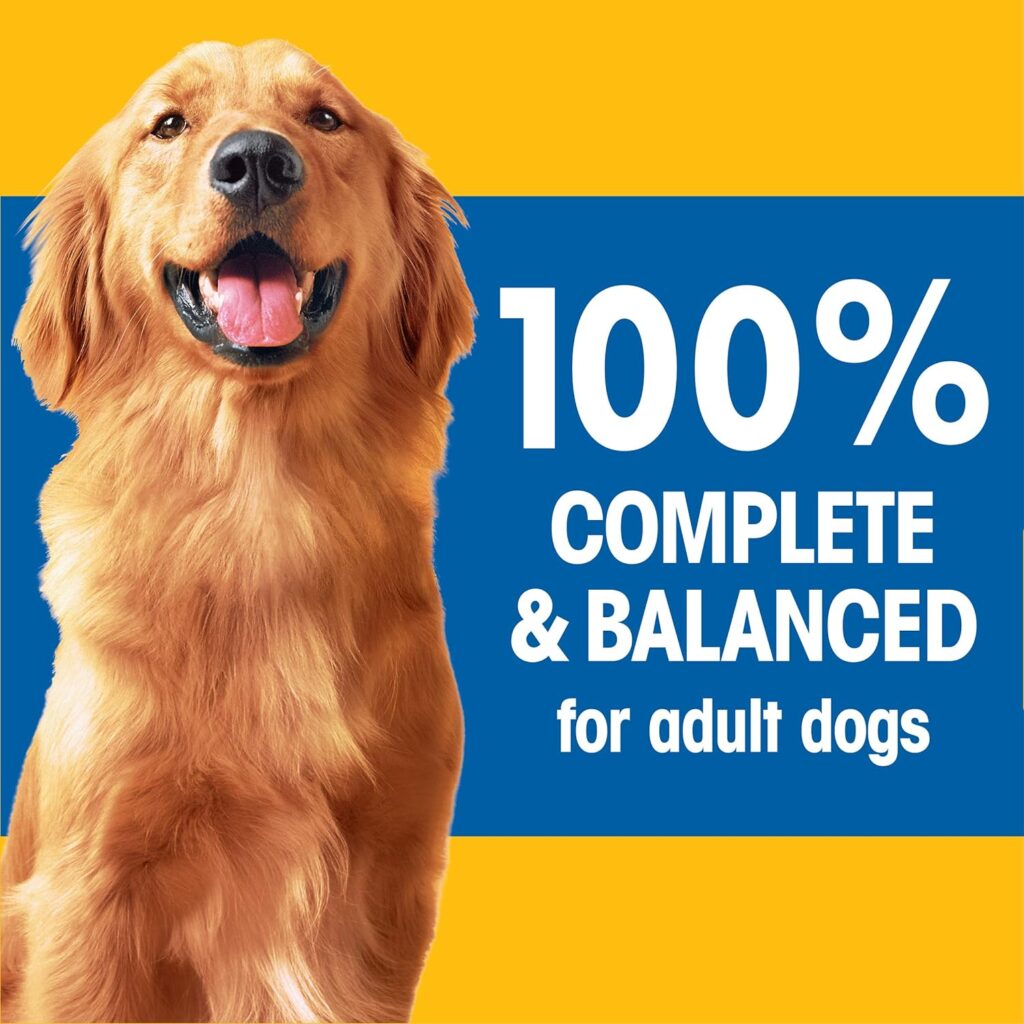
Aggression
Aggression is another dog health issue that can pose risks to both the dog and others. Understanding the root cause is essential for addressing this behavior.
Common causes of aggression include:
- Fear or anxiety
- Territorial behavior
- Protective instincts
- Pain or illness
Steps to manage aggression:
- Identify triggers and avoid them
- Use positive reinforcement training
- Provide ample exercise and mental stimulation
- Seek professional help from a dog behaviorist
Aggression can often stem from regular dog health concerns like pain or illness. A vet check-up can rule out any underlying canine diseases.
Excessive Barking
Excessive barking is a common behavioral issue that can become a nuisance. Understanding why a dog barks excessively helps in finding the right solution.
Common reasons for excessive barking:
- Boredom or loneliness
- Anxiety or fear
- Attention-seeking behavior
- Protective or territorial instincts
Ways to manage excessive barking:
- Providing mental stimulation and physical exercise
- Training commands like “quiet” or “enough”
- Using puzzle toys to keep the dog occupied
- Addressing any pet health challenges that may contribute to the behavior
Excessive barking can be reduced by ensuring your dog maintains a healthy weight and receives regular parasite treatment, as these contribute to overall health.
Environmental Factors
Environmental factors play a crucial role in your dog’s health. Many dog health issues and solutions stem from their surroundings. Understanding these factors can help prevent problems and ensure your furry friend’s well-being. Here, we discuss three key areas: toxic plants, safety hazards, and proper shelter.
Toxic Plants
Some plants are harmful to dogs. These toxic plants can cause various health issues, ranging from mild irritation to severe poisoning. It’s essential to know which plants are dangerous and keep them out of your dog’s reach.
Common toxic plants include:
- Azaleas
- Tulips
- Oleander
- Sago palm
- Ivy
Symptoms of plant poisoning vary but can include:
- Vomiting
- Diarrhea
- Drooling
- Difficulty breathing
- Seizures
If you suspect your dog has ingested a toxic plant, seek veterinary help immediately. Keeping a list of dangerous plants and regularly checking your yard can prevent these issues.
Safety Hazards
Your home and yard can hide many safety hazards. Regular dog health concerns often arise from common household items and outdoor dangers. Identifying and mitigating these risks is crucial for your dog’s safety.
Common safety hazards include:
- Electrical cords
- Small objects like buttons
- Household chemicals
- Sharp tools
- Pools and water bodies
Simple solutions to prevent accidents include:
- Using cord protectors
- Keeping small objects out of reach
- Storing chemicals securely
- Locking away sharp tools
- Installing pool fences
Dog health issues and solutions often involve making your home safer. Regularly inspect your living space for potential dangers.
Proper Shelter
Providing proper shelter is vital for your dog’s well-being. Pet health challenges can arise from inadequate shelter, especially in extreme weather.
Key elements of proper shelter include:
- Weather protection
- Comfortable bedding
- Good ventilation
- Safe and secure structure
Benefits of proper shelter:
- Protection from heat and cold
- Reduced stress
- Better sleep quality
- Prevention of parasites
Ensuring your dog has a suitable shelter can prevent many dog health issues. Regularly check the shelter’s condition and make necessary improvements.
Holistic Approaches
Many pet owners seek natural ways to address dog health issues and solutions. Holistic approaches provide gentle, effective alternatives for treating various ailments. These methods focus on the whole pet, aiming to enhance their overall well-being. Below are some popular holistic approaches to consider for your dog’s health.
Acupuncture
Acupuncture is a traditional Chinese medicine technique that can help with various dog health issues. It involves inserting fine needles into specific points on the body to stimulate healing and pain relief. Here are some benefits of acupuncture for dogs:
- Pain management: Helps alleviate pain from arthritis, hip dysplasia, and other chronic conditions.
- Improved mobility: Enhances joint movement and reduces inflammation.
- Stress reduction: Calms anxiety and stress, promoting overall well-being.
Acupuncture is particularly effective for older dogs experiencing joint problems. Regular sessions can significantly improve their quality of life. Consult a certified veterinary acupuncturist to ensure safe and effective treatment.
Herbal Remedies
Herbal remedies are another holistic approach to address dog health issues. They utilize natural plant-based ingredients to promote healing and well-being. Some common herbal remedies include:
- Chamomile: Calms anxiety and soothes the digestive system.
- Milk Thistle: Supports liver health and detoxification.
- Turmeric: Reduces inflammation and joint pain.
Herbal remedies can address various pet health challenges like digestive issues, skin problems, and immune support. Always consult a veterinarian before starting any herbal treatment to ensure safety and proper dosage.
Massage Therapy
Massage therapy is a soothing technique that can benefit dogs in many ways. It involves gentle manipulation of muscles and soft tissues to promote relaxation and healing. Some advantages of massage therapy include:
- Pain relief: Eases muscle tension and reduces discomfort from injuries or chronic conditions.
- Improved circulation: Enhances blood flow, aiding in faster recovery and overall health.
- Stress reduction: Calms the nervous system, reducing anxiety and promoting a sense of well-being.
Regular massage sessions can help maintain a healthy weight by encouraging physical activity. It also aids in parasite treatment by improving skin health and resilience. Always seek a professional pet masseuse to ensure proper technique and maximum benefit.
Emergency Preparedness
Dog health issues and solutions are a crucial part of responsible pet ownership. Emergencies can happen at any time, so being prepared is essential. Knowing how to handle sudden health issues can make a significant difference in your dog’s wellbeing. This section focuses on emergency preparedness, ensuring you are ready for any unexpected situations.
First Aid Kit
Every dog owner should have a well-stocked first aid kit. A first aid kit helps you manage minor injuries and stabilize your pet until you can get to a vet. Here’s what you need:
- Gauze and bandages: To control bleeding and cover wounds.
- Antiseptic wipes: Clean wounds to prevent infection.
- Hydrogen peroxide: Induce vomiting if advised by a vet.
- Tweezers: Remove splinters or ticks.
- Digital thermometer: Monitor your dog’s temperature.
- Scissors: Cut bandages or hair around wounds.
- Latex gloves: Protect yourself while treating your dog.
Keep all these items in a waterproof container. Regularly check the kit and replace any expired items. A ready first aid kit is vital for addressing regular dog health concerns and minor injuries.
Knowing Emergency Vet Contacts
Knowing emergency vet contacts can save precious time during a crisis. Here’s how to stay prepared:
- Research local emergency vets: Identify clinics that offer 24/7 services.
- Save contact numbers: Store vet contacts in your phone and write them down.
- Know the route: Familiarize yourself with the fastest way to the vet.
- Emergency cards: Place vet contact cards in your car and home.
Being prepared with emergency vet contacts helps you react quickly during pet health challenges. Immediate access to professional help can be crucial for serious injuries or sudden illnesses.
Cpr Basics
Knowing CPR basics can be a lifesaver in critical situations. Here’s a simple guide:
- Check for breathing: Look for chest movements and listen for breath sounds.
- Open the airway: Gently extend the neck and clear any obstructions.
- Administer rescue breaths: Cover your dog’s nose with your mouth and give two breaths.
- Chest compressions: Place your hands over the heart and press firmly. For small dogs, use one hand.
- Repeat the cycle: Alternate between 30 compressions and two breaths until help arrives.
Practicing these CPR basics can make a significant difference during emergencies. Stay calm and follow the steps to help your dog. This knowledge is essential for dealing with critical canine diseases and sudden health issues.
Senior Dog Care
As our furry friends age, they face unique health challenges. Senior dogs need special care to ensure their well-being. Understanding dog health issues and solutions is key. This guide focuses on essential aspects of senior dog care, helping you keep your older pet happy and healthy.
Joint Health
Joint health is crucial for senior dogs. As dogs age, their joints become less flexible, leading to discomfort and mobility issues. Arthritis is a common problem in older dogs. Symptoms include stiffness, limping, and reluctance to move.
To manage joint health:
- Provide a comfortable bed for joint support.
- Incorporate joint supplements like glucosamine and chondroitin.
- Maintain a healthy weight to reduce joint strain.
- Engage in low-impact exercises such as swimming and gentle walks.
Consult your vet for the best treatment options. They may recommend anti-inflammatory medications or physical therapy. Regular check-ups can help monitor and manage your dog’s joint health effectively.
Special Diet Considerations
Diet plays a crucial role in the health of senior dogs. Older dogs have different nutritional needs. Special diet considerations can help address these needs and prevent regular dog health concerns.
Key components of a senior dog’s diet include:
- High-quality protein for muscle maintenance.
- Fiber-rich foods to aid digestion.
- Omega-3 fatty acids for joint and skin health.
- Antioxidants to support the immune system.
Feeding smaller, more frequent meals can help with digestion. Ensure your dog’s diet is balanced and tailored to their specific needs. Consult your vet for personalized dietary advice.
Regular Health Screenings
Regular health screenings are vital for senior dogs. These screenings can detect canine diseases early, allowing for prompt treatment. Regular vet visits should include:
- Blood tests to check organ function.
- Urine analysis to detect kidney or bladder issues.
- Dental exams to prevent tooth decay and gum disease.
- Parasite treatment to keep your dog free from fleas, ticks, and worms.
Early detection of health issues can improve your dog’s quality of life. Routine screenings help manage pet health challenges effectively. Always keep an eye on any changes in your dog’s behavior or physical condition and consult your vet if you notice anything unusual.
Breed-specific Health Concerns
Dog health issues and solutions are critical for every pet owner. Breed-specific health concerns are essential to understand for the well-being of your dog. Different breeds have unique health challenges that require tailored care. Knowing these concerns helps in ensuring a happy and healthy life for your furry friend.
Genetic Predispositions
Many dog breeds have genetic predispositions to certain health issues. These predispositions are inherited and can affect a dog’s quality of life. Understanding these genetic factors helps in early diagnosis and management. Below are some examples of breed-specific genetic health issues:
- Hip Dysplasia: Common in German Shepherds and Labradors.
- Heart Disease: Often seen in Cavalier King Charles Spaniels.
- Intervertebral Disc Disease: Frequently found in Dachshunds.
These genetic predispositions mean that regular vet visits are vital. Early detection can prevent severe complications. Below is a table showing some breeds and their common genetic issues:
| Breed | Common Genetic Issues |
|---|---|
| German Shepherd | Hip Dysplasia |
| Cavalier King Charles Spaniel | Heart Disease |
| Dachshund | Intervertebral Disc Disease |
Specific Health Tests
Specific health tests are crucial for identifying breed-specific issues early. These tests help in diagnosing and managing potential health problems. Regular dog health concerns can be addressed more effectively with these tests. Some essential health tests for different breeds include:
- Hip and Elbow X-rays: Important for breeds prone to hip dysplasia.
- Cardiac Exams: Vital for dogs at risk of heart disease.
- Eye Exams: Necessary for breeds with a history of eye problems.
These tests help in monitoring your dog’s health. Early detection can lead to better treatment outcomes. Below is a table showing some breeds and recommended tests:
| Breed | Recommended Tests |
|---|---|
| German Shepherd | Hip and Elbow X-rays |
| Cavalier King Charles Spaniel | Cardiac Exams |
| Bulldog | Respiratory Function Tests |
Tailored Care
Providing tailored care for your dog is essential for managing breed-specific health issues. Tailored care includes diet, exercise, and preventive measures. Here are some steps to ensure your dog stays healthy:
- Specialized Diet: Certain breeds require specific diets to manage their health issues. Consult your vet for recommendations.
- Regular Exercise: Exercise plans should be tailored to your dog’s breed and health status.
- Preventive Measures: Regular check-ups, vaccinations, and parasite treatment help in preventing common canine diseases.
Tailored care also involves monitoring your dog’s weight. Maintaining a healthy weight is crucial for preventing various health issues. Below is a table showing some tailored care tips for specific breeds:
| Breed | Tailored Care Tips |
|---|---|
| German Shepherd | High-protein diet, regular hip exercises |
| Cavalier King Charles Spaniel | Heart-friendly diet, moderate exercise |
| Dachshund | Low-fat diet, controlled jumping activities |
By understanding and implementing these tailored care strategies, you can ensure your dog leads a healthy and happy life.
Vaccination And Preventive Medications
Ensuring your dog stays healthy involves more than just regular vet visits. Understanding dog health issues and solutions is crucial. Vaccination and preventive medications are key steps in preventing serious diseases. They help protect your furry friend from common canine diseases, maintaining their well-being and happiness.
Core Vaccines
Core vaccines are essential for all dogs, regardless of their lifestyle. These vaccines protect against highly contagious and potentially deadly diseases. Core vaccines include:
- Rabies: Rabies is a viral disease that affects the central nervous system. It’s fatal and can be transmitted to humans.
- Distemper: This virus affects a dog’s respiratory, gastrointestinal, and nervous systems. It’s highly contagious and often fatal.
- Parvovirus: Parvo causes severe vomiting and diarrhea, leading to dehydration. Puppies are especially vulnerable.
- Adenovirus (Canine Hepatitis): This virus targets the liver, kidneys, and eyes. It can cause severe illness or death.
Vaccinating your dog against these diseases is crucial. It protects not only your pet but also other animals and humans. Regular boosters are necessary to maintain immunity. Consult your vet to create a vaccination schedule tailored to your dog’s needs.
Optional Vaccines
Optional vaccines are recommended based on your dog’s lifestyle and environment. These vaccines help protect against diseases that are less common but still pose a risk. Optional vaccines include:
- Bordetella (Kennel Cough): This vaccine is essential for dogs that spend time in kennels, dog parks, or grooming facilities.
- Lyme Disease: If you live in or travel to areas with high tick populations, this vaccine can help prevent Lyme disease.
- Leptospirosis: This bacterial infection can be contracted from contaminated water or soil. It’s more common in rural areas.
- Canine Influenza: This vaccine is recommended for dogs that are frequently exposed to other dogs, like in doggy daycares or boarding facilities.
Discuss these optional vaccines with your vet. They can help you decide which ones are appropriate for your dog’s lifestyle. Protecting your pet from these diseases ensures they stay healthy and happy.
Flea And Tick Control
Flea and tick infestations are common pet health challenges. These parasites can cause severe discomfort and transmit diseases. Effective flea and tick control involves:
- Topical Treatments: These are applied directly to your dog’s skin, providing month-long protection.
- Oral Medications: These pills or chews kill fleas and ticks from the inside out. They are usually given monthly.
- Collars: Flea and tick collars release chemicals that repel and kill these pests. They can provide up to eight months of protection.
- Environmental Control: Regularly cleaning your dog’s bedding and vacuuming your home helps eliminate fleas and ticks.
Consult your vet to choose the best parasite treatment for your dog. Regular flea and tick control is essential for preventing infestations and keeping your pet healthy. Protecting your dog from these pests also helps avoid diseases they can carry.

Credit: petfriendlybox.com
Alternative Therapies
Taking care of your furry friend involves addressing various dog health issues and solutions. Regular vet visits are crucial, but many pet owners are exploring alternative therapies to complement traditional treatments. From managing pain to reducing anxiety, these therapies offer natural ways to improve your dog’s well-being.
Cbd Oil
CBD Oil is gaining popularity among pet owners for its potential benefits. Extracted from hemp plants, CBD oil may help in treating several dog health issues. It’s known to reduce anxiety, alleviate pain, and even improve appetite.
Here are some potential benefits of CBD oil:
- Anxiety Relief: Helps in calming anxious dogs.
- Pain Management: Useful for arthritis and other chronic pain conditions.
- Appetite Stimulation: Encourages eating in picky eaters.
Before giving your dog CBD oil, consult your vet. It’s essential to choose high-quality, pet-specific products. Look for oils that are free of THC, as this compound can be harmful to dogs. Start with a low dose and monitor your dog’s response.
| Issue | CBD Oil Benefit |
|---|---|
| Anxiety | Calming effect |
| Arthritis | Pain relief |
| Poor Appetite | Increased eating |
Physical Therapy
Physical therapy is another excellent option for addressing various dog health issues. It involves exercises and treatments designed to improve mobility, strength, and overall health. This therapy can benefit dogs recovering from surgery, dealing with arthritis, or needing weight management.
Some common physical therapy techniques include:
- Hydrotherapy: Swimming or underwater treadmill exercises.
- Massage: Relieves muscle tension and improves circulation.
- Range of Motion Exercises: Helps in joint flexibility.
Physical therapy can be done at specialized centers or even at home. Consult a certified canine physical therapist to create a tailored plan for your dog. Regular sessions can significantly improve your dog’s quality of life.
Here’s a quick overview of benefits:
| Technique | Benefit |
|---|---|
| Hydrotherapy | Improves mobility |
| Massage | Relieves tension |
| Range of Motion | Increases flexibility |
Aromatherapy
Aromatherapy uses essential oils to address dog health issues. These oils can help reduce stress, improve mood, and even repel parasites. Popular choices include lavender for calming effects and peppermint for its cooling properties.
To use aromatherapy safely:
- Choose Dog-Safe Oils: Not all essential oils are safe for dogs.
- Use a Diffuser: Disperse oils in the air rather than applying directly.
- Monitor Reactions: Watch for any signs of discomfort or allergic reactions.
Aromatherapy can be a soothing addition to your dog’s routine. Always use high-quality, therapeutic-grade essential oils. Dilute them properly and ensure your dog has a way to leave the room if the scent becomes overwhelming.
Here are some essential oils and their benefits:
| Essential Oil | Benefit |
|---|---|
| Lavender | Calming |
| Peppermint | Cooling effect |
| Chamomile | Stress relief |
Financial Planning For Health Care
Owning a dog comes with joy, love, and sometimes unexpected health challenges. Financial planning for health care is essential to manage these situations. This guide provides dog health issues and solutions by focusing on pet insurance, budgeting for vet costs, and establishing an emergency fund. These steps ensure your furry friend gets the care they need without financial stress.
Pet Insurance
Pet insurance is a smart way to manage unexpected vet bills. It covers various dog health issues and solutions, ensuring your pet gets timely treatment. Here are some key benefits of pet insurance:
- Coverage for accidents and illnesses: This includes treatments for regular dog health concerns like infections and injuries.
- Preventive care: Many plans cover routine check-ups, vaccinations, and parasite treatment.
- Flexible plans: Choose coverage that fits your budget and your dog’s needs.
Consider these tips when selecting pet insurance:
- Compare different providers: Look at coverage options, exclusions, and costs.
- Check reviews: Read feedback from other pet owners to gauge reliability.
- Understand the waiting periods: Know when coverage begins after enrollment.
Pet insurance can be a lifesaver during emergencies, ensuring your pet receives prompt care without breaking the bank.
Budgeting For Vet Costs
Budgeting for vet costs helps manage regular dog health concerns effectively. Start by understanding the average annual costs:
| Expense | Average Cost |
|---|---|
| Routine Check-ups | $50 – $100 |
| Vaccinations | $75 – $150 |
| Dental Care | $300 – $700 |
| Parasite Treatment | $50 – $200 |
To budget effectively, follow these steps:
- Track past expenses: Record past vet bills to estimate future costs.
- Create a monthly budget: Allocate funds for routine care and unexpected visits.
- Save for high-cost procedures: Set aside money for surgeries or long-term treatments for canine diseases.
Regular budgeting ensures you can handle pet health challenges without financial strain.
Emergency Fund
Having an emergency fund is crucial for unexpected pet health challenges. Emergencies like accidents or sudden illnesses can be costly. An emergency fund ensures immediate care without financial worry. Here’s how to establish one:
- Set a goal: Aim to save at least $1,000 to $2,000 for emergencies.
- Start small: Begin with monthly contributions, even $20 can add up.
- Use a separate account: Keep this fund in a separate savings account to avoid using it for other expenses.
Consider these tips to build your fund faster:
- Automate savings: Set up automatic transfers to your emergency fund account.
- Cut non-essential expenses: Redirect savings from non-essential spending to your fund.
- Use bonuses or tax refunds: Allocate extra income directly to the emergency fund.
Having an emergency fund provides peace of mind and ensures your dog gets timely care for any health issues.
Frequently Asked Questions: Dog Health Issues And Solutions
What Are Common Dog Health Issues?
Common dog health issues include allergies, dental disease, arthritis, and obesity. These conditions can affect your dog’s quality of life. Regular vet check-ups are essential.
How Can I Prevent Dog Obesity?
Prevent dog obesity by providing a balanced diet and regular exercise. Avoid overfeeding and limit treats. Monitor your dog’s weight regularly.
What Are Signs Of Dental Disease In Dogs?
Signs of dental disease in dogs include bad breath, swollen gums, and difficulty eating. Regular dental check-ups are crucial for prevention.
How Do I Treat My Dog’s Allergies?
Treat your dog’s allergies by identifying and avoiding allergens. Consult a vet for medication or special diets. Regular grooming also helps.
Conclusion
Ensuring your dog’s health is crucial for a happy life. Identify issues early and consult your vet. Regular check-ups and a balanced diet can prevent many problems. Always stay informed about common health issues and solutions. Your pet’s well-being relies on proactive care and attention.
Keep your furry friend healthy and joyful.

